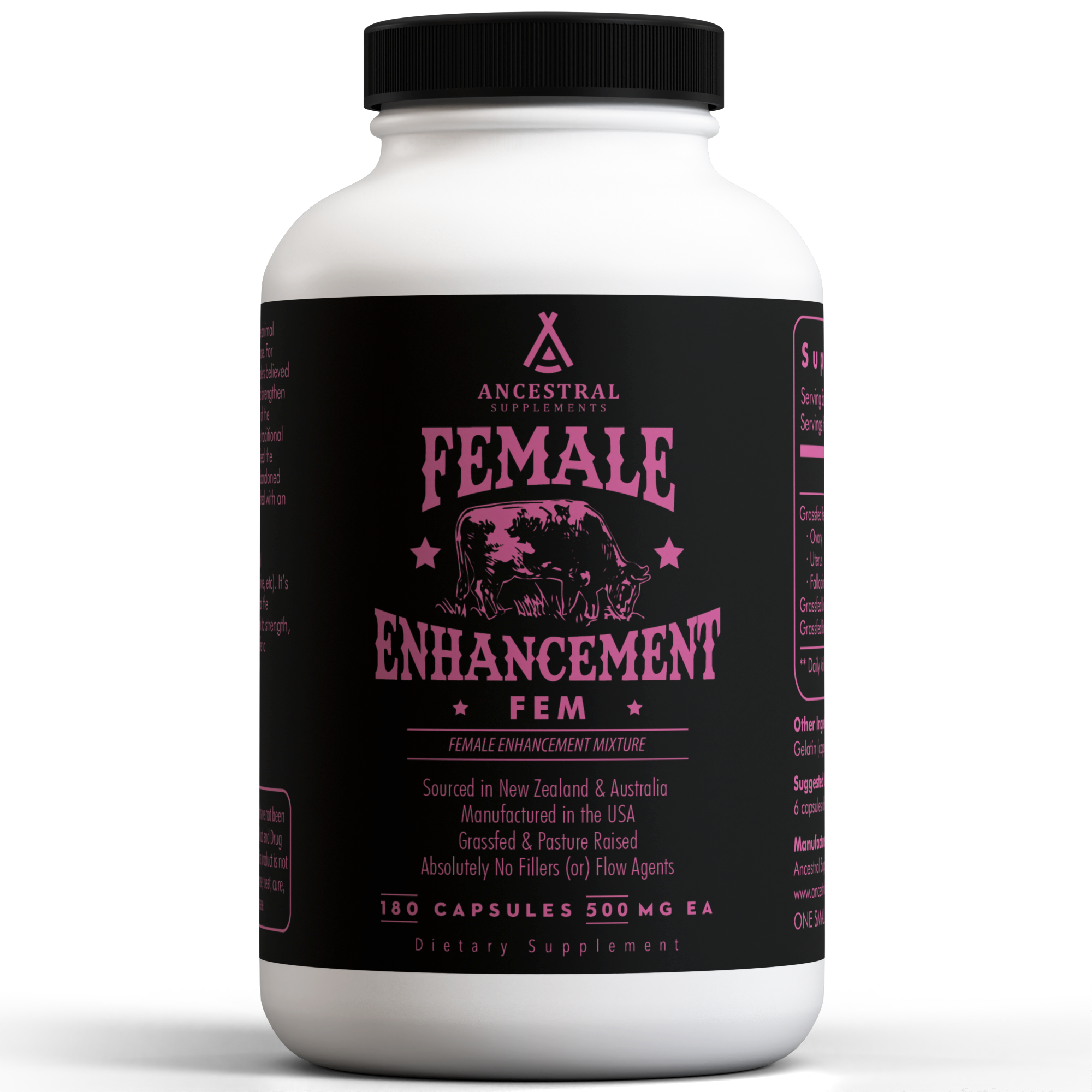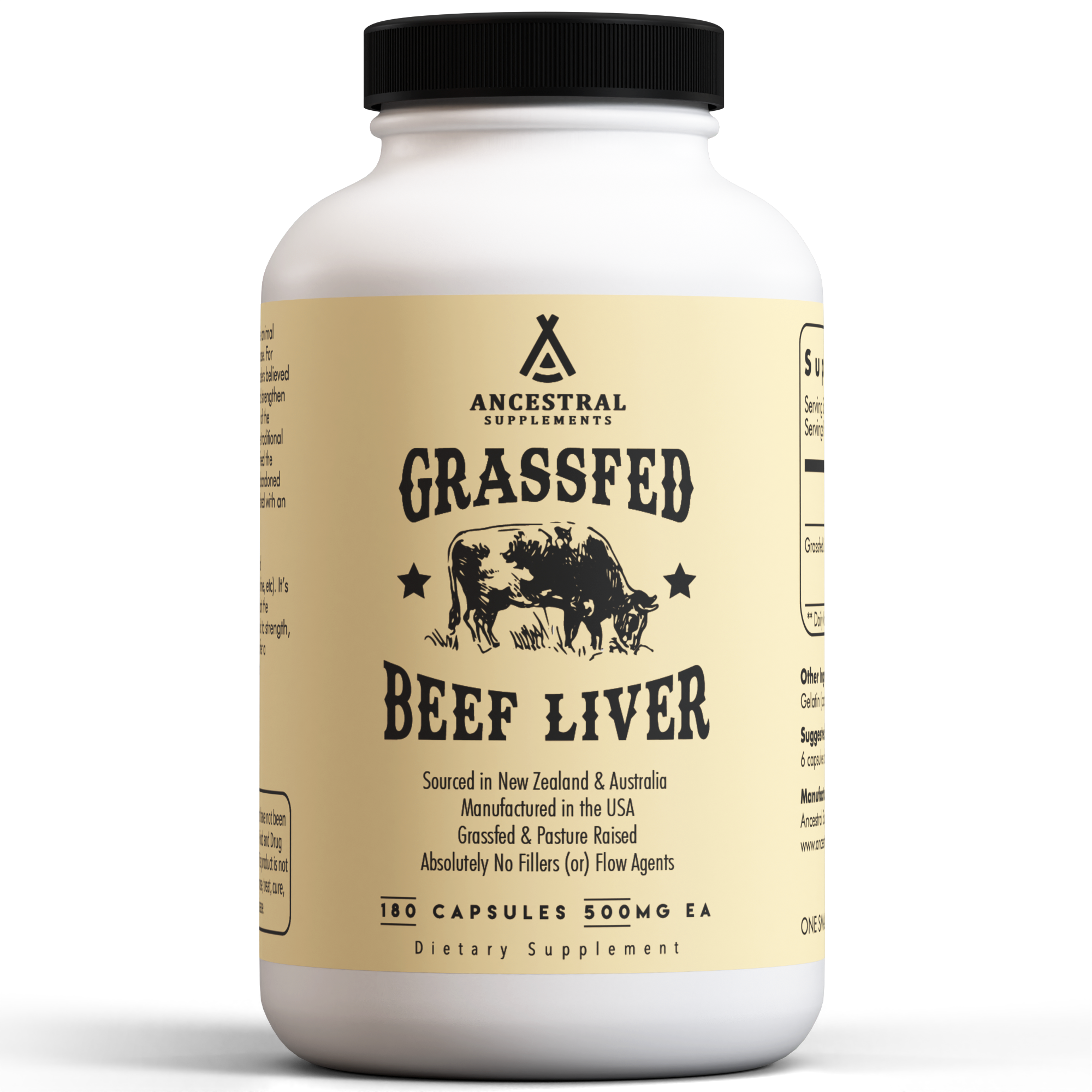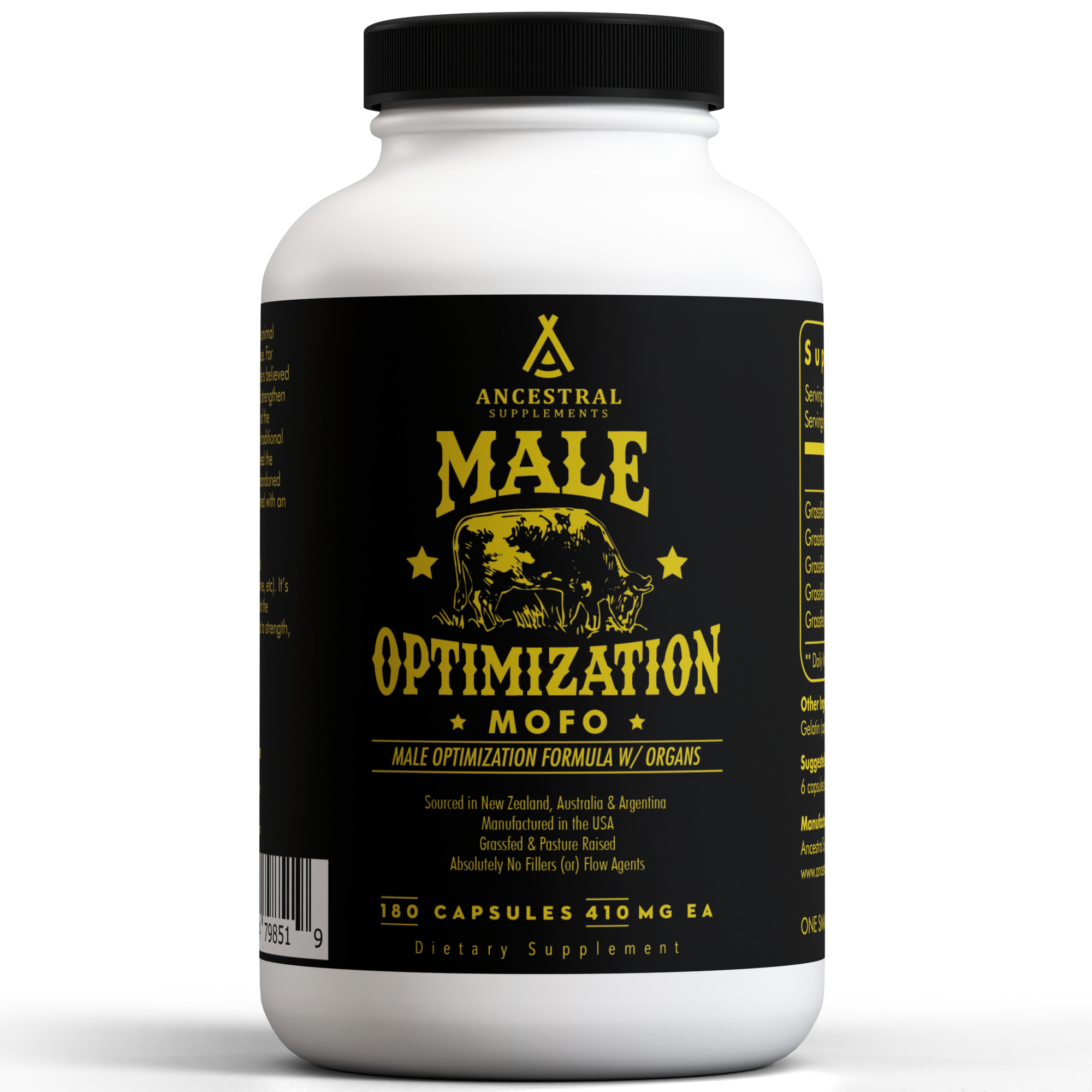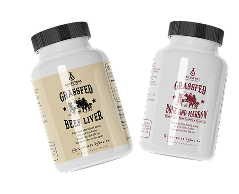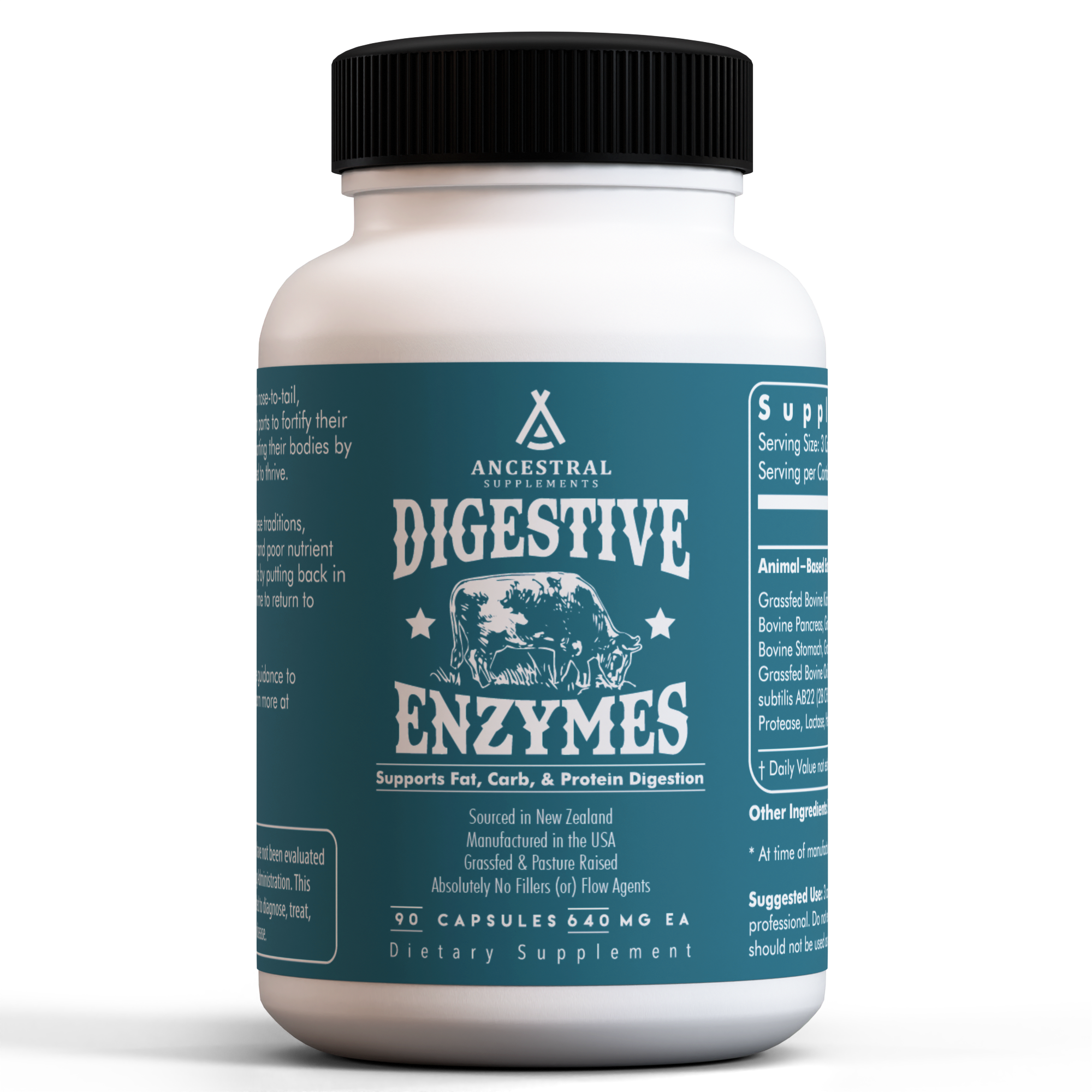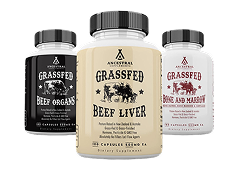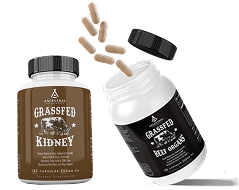The Muscle Meat Myth: Why Your Diet May Be Missing Critical Nutrients

MYTH: If you're eating high-quality muscle meat like grass-fed ground beef or pasture-raised chicken breast, you're getting all the nutrients you need from animal products. Organ meats are just an unnecessary "extra."
BUSTED: This couldn't be further from the truth. While muscle meat is an excellent source of protein and certain nutrients, it's nutritionally incomplete compared to organ meats. In fact, our ancestors understood something modern society has forgotten: organs are nature's multivitamins.
The Great Nutritional Divide
Let's look at the cold, hard numbers. Here's a comparison between 100g of grass-fed beef (muscle meat) versus 100g of grass-fed beef liver: (1, 2)
Vitamin A (Retinol)
-
Muscle meat: 0 IU
-
Liver: 7,683 IU
Vitamin B12
-
Muscle meat: 2.17 mcg
-
Liver: 82.47 mcg
Folate
-
Muscle meat: 6 mcg
-
Liver: 258 mcg
Iron
-
Muscle meat: 2.09 mg
-
Liver: 6.12 mg (highly bioavailable heme iron)
Copper
-
Muscle meat: 0.07 mg
-
Liver: 14.47 mg
The pattern is clear: Organ meats don't just contain a little more of certain nutrients—they contain exponentially higher amounts of vitamins and minerals that are either completely absent or present in negligible quantities in muscle meat.
Why Our Ancestors Knew Better
Traditional cultures worldwide didn't treat organ meats as "weird food" or "acquired tastes." They were considered the most prized parts of the animal:
-
Inuit hunters gave the liver to pregnant and nursing mothers first
-
Masai warriors consumed blood and organ meats for strength and vitality
-
Native American tribes saved organ meats for elders, children, and hunters
-
European cultures created delicacies around organ meats (pâtés, blood sausages, haggis)
These weren't cultural quirks—they were nutritional wisdom passed down through generations who understood that survival and thriving required the complete nutritional profile that only whole-animal consumption could provide.
The Modern Muscle Meat Obsession
So how did we get so focused on muscle meat? Several cultural shifts led us astray:
Industrial farming made muscle meat cheap and abundant while organs became byproducts sent to pet food companies.
Marketing focused on protein because it was easier to sell "lean protein" than explain the complex nutritional profiles of organs.
Aesthetic preferences developed around familiar cuts of meat, while organ meats became associated with poverty or "weird" foods.
The supplement industry convinced us we could get everything we needed from synthetic vitamins, making organ consumption seem unnecessary.
The Bioavailability Factor
Even when synthetic supplements contain the same nutrients found in organ meats, they're not equivalent. Organ meats provide nutrients in their natural matrix, surrounded by cofactors that enhance absorption and utilization.
For example, the iron in liver is heme iron is absorbed more efficiently than the non-heme iron found in supplements. The vitamin A in liver is pre-formed retinol, ready for immediate use, unlike plant-based beta-carotene that requires conversion (and many people have genetic variants that make this conversion inefficient). (3)
Real-World Nutritional Gaps
Many people eating diets centered around muscle meat still experience:
-
Fatigue and low energy (often from copper and B-vitamin deficiencies)
-
Poor immune function (vitamin A deficiency is surprisingly common)
-
Fertility issues (organs provide nutrients crucial for reproductive health)
-
Skin problems (vitamin A and copper are essential for skin health)
-
Mental fog (B12 and folate are critical for brain function)
These aren't necessarily signs of poor dietary choices—they're often signs of incomplete nutrition that our muscle meat-focused culture has normalized.
The Ancestral Solution
We created our organ supplements because we understand this nutritional gap. Our freeze-dried organ capsules provide the concentrated nutrition of fresh organs in a convenient form that fits modern lifestyles.
When you take our Grass Fed Beef Liver capsules, you're not just getting a supplement—you're getting the same nutrients that sustained our ancestors, in the same ratios nature intended, without the cooking, preparation, or taste barriers that keep most people from eating fresh organs.
The Bottom Line
Muscle meat is fantastic—don't stop eating it. But thinking it provides complete nutrition is like thinking you can build a house with just hammers. You need the full toolkit.
Our ancestors didn't have the luxury of believing this myth. They needed every nutritional advantage to survive and thrive in harsh environments. They understood that nose-to-tail eating wasn't just about avoiding waste—it was about accessing the complete nutritional blueprint that only whole animals provide.
The myth that muscle meat provides complete nutrition isn't just wrong—it's potentially harmful. It keeps us from accessing some of nature's most concentrated sources of bioavailable nutrients.
Ready to fill the gaps? Discover how our organ supplements can provide the missing pieces of your nutritional puzzle, exactly as nature intended.

